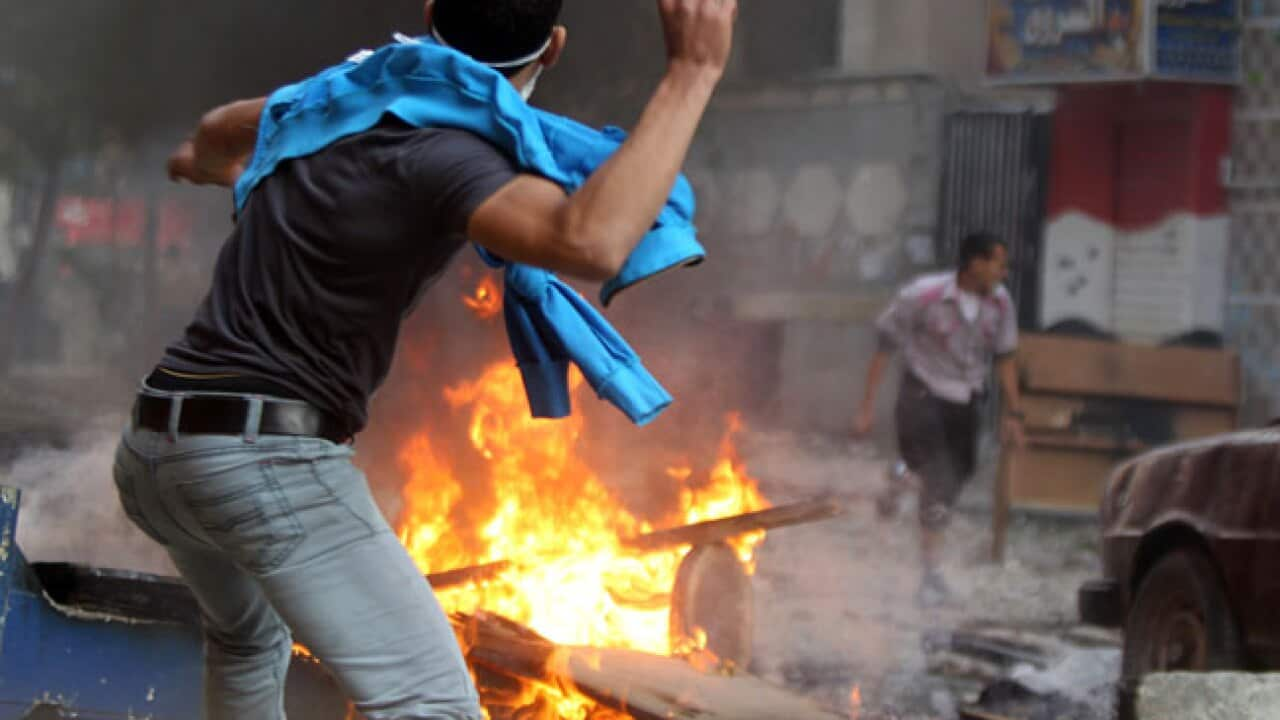The grand imam of Al-Azhar, Sunni Islam's highest seat of learning, called on Egyptian police not to shoot at protesters demanding democratic change as four more people died in clashes.
As thousands rallied for a fifth straight day in Cairo's iconic Tahrir Square, epicentre of the Arab Spring uprising which overthrew veteran president Hosni Mubarak in February, an opinion poll found that 43 percent of Egyptians thought the ruling military was trying to slow down or reverse its gains.
In the unusually strong statement from Al-Azhar, grand imam Sheikh Ahmed al-Tayyeb said that any dialogue "stained with blood is doomed and its fruit will be bitter."
Al-Azhar "calls on the police leadership to immediately issue orders not to point their weapons at demonstrators... no matter what the reasons," Tayyeb said in a recorded address broadcast on state television.
It calls "on the armed forces to throw all their weight behind preventing confrontations between one people," he added.
"Al-Azhar also calls on our children in Tahrir Square and all the squares of Egypt to maintain the peaceful nature of their revolution, despite the sacrifices and difficulties they face and to protect all private and public property."
FOUR MORE DEAD IN CLASHES
The statement came as three more people died in clashes with police in and around Tahrir Square, a medic said, and a fourth was shot dead in the northwestern city of Mersa Matruh when security forces clashed with demonstrators trying to storm a police station, state media said.
Clashes were also reported in the Mediterranean city of Alexandria, where hundreds of people protested outside the military headquarters, calling for the transfer of power to a civilian administration.
Troops fired tear gas to disperse a separate demonstration at the security directorate, the official MENA news agency said, adding that an unspecified number of injured protesters were taken to a nearby field hospital.
The violence came despite a pledge on Tuesday by Field Marshal Hussein Tantawi, Mubarak's long-time defence minister now in charge of the country, that the military does not seek indefinite rule.
In Cairo, riot police fired tear gas and birdshot, which ricocheted off concrete buildings, sending dust and chips of cement into tear gas-filled air, an AFP correspondent reported.
The military beefed up security on Mohammed Mahmud Street, a flashpoint road leading from Tahrir Square to the heavily fortified interior ministry, deploying extra armoured vehicles.
A 10-year-old child was among the latest casualties, hit in the head by a live bullet, according to Father Fawzi Abdel Wahib at a church turned into a field hospital.
"He was taken to the Qasr al-Aini hospital. He probably won't make it alive to the hospital," said Abdel Wahib.
The health ministry said in a statement Wednesday that a total of 35 people had died countrywide since the latest clashes began on Saturday.
DEEPLY SHOCKING IMAGES: UN
UN High Commissioner for Human Rights Navi Pillay called the images coming out of Egypt "deeply shocking," and urged the authorities to end their "clearly excessive use of force" against protesters.
British Foreign Secretary William Hague also expressed deep concern at the "unacceptable violence and loss of life" in and around Tahrir Square.
Egypt's military ruler pledged in a rare televised address on Tuesday night to hold a presidential election by the end of June -- six months earlier than scheduled.
Tantawi said he was also ready to transfer power immediately, through a referendum, "should the people wish it."
But tens of thousands of Egyptians attending an anti-military rally in Tahrir Square railed against Tantawi, when news of his statement reached them.
Ahmed Nur, 37, said on Wednesday that before the latest clashes he was prepared to wait until mid-2012 for the ruling Supreme Council of the Armed Forces (SCAF) to step down, but not any more.
"SCAF has to leave now. Enough. Every minute, one of us is killed or wounded. Why?" asked the restaurant manager.
An opinion poll published by the University of Maryland on Wednesday found that 43 percent of respondents believed Egypt's military rulers were working to slow or reverse the transition to democracy.
Analysts said that while the demonstrators in Tahrir Square might not represent the majority of the Egyptian population, their influence was unquestionable.
"We are seeing middle class youth being killed, and that moves big segments in the cities and provinces," said Nabil Abdel Fatah of the Al-Ahram Centre for Political and Strategic Studies.

